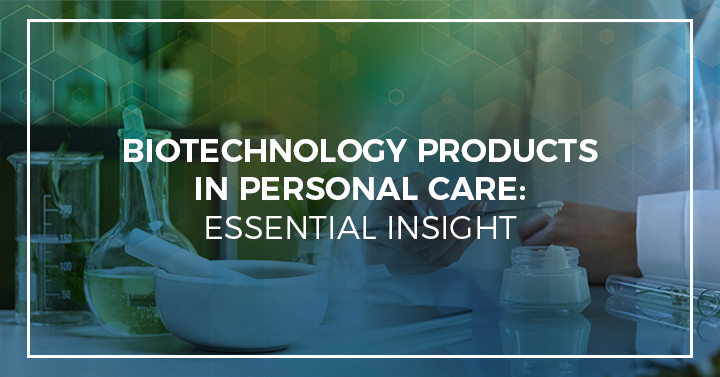Biotechnology is one of the fastest-growing categories of cosmetics products in the world.
In the personal care actives industry, the term “biotechnology products” indicates all products manufactured through bioprocesses, which primarily includes products produced with extracts from micro-organisms. Cosmetics companies are gradually adopting these technologies, as they offer better results on topical application and meet consumer demand for high-efficacy and natural products. Moreover, growing consumer awareness about sustainable sourcing favors the growth of biotechnology actives, which are derived from natural sources.
Hyaluronic acid and ceramides compete for primacy across all researched country markets, as they are valued for their performance for anti-aging and hair care functionalities.
In Europe, hyaluronic acid and its derivatives are by far the leading sellers in the biotechnology products category. However, hyaluronic acid is now well established; consequently, its growth has slowed over the past few years. In contrast, growth is forecast to be strong in Japan. Among the many reasons for this strength is consumers’ desire for what is termed “mochi skin,” or skin that is “pillowy, supple, and milky with a dewy and translucent look.” This look is achieved through products that provide hydrating benefits. Hyaluronic acid is considered one of the best ingredients for providing moisturizing benefits to the skin, thus driving demand in Japan.
Stem cell extracts have been among the fastest-growing products in the biotechnology category over the past five years, across all regions. They are more sustainable and efficacious, especially for skin care applications. In personal care products, stem cell extracts are primarily utilized to provide photodamage and DNA protection. They are being used in the more-advanced skin care products in the market, especially in the anti-aging segment.
Included among the most prominent trends driving the Biotechnology actives is skin microbiome. In the ecosystem of the skin, the term “microbiome” refers to the billions of microorganisms living on the surface of the skin and helping to protect its health and well-being. Several manufacturers, such as Croda and BASF, have been focusing their research on understanding the function of the skin microbiota. This research includes development around specific biotechnology actives such as probiotics and prebiotics.
As taking advantage of microbiome becomes a more widely developed trend, suppliers of fermented ingredients, probiotics, and prebiotics are anticipated to show stronger growth in the short term, through 2024, as personal care manufacturers focus development on products formulated with such ingredients.
The supplier landscape varies from one market to another. In some markets, such as the United States, the landscape is dominated by multinational suppliers, which are present across most key regions in the global specialty actives. In countries such as Japan or China, domestic suppliers are playing an important role, often taking the lead. For instance, in China, Freda is the leading supplier in the biotechnology category, based on its large sales of hyaluronic acid and due to the company having technology advantages. Freda also supplies medical-grade, cosmetic-grade, and food-grade hyaluronic acid and is the only company with a license to produce injection-grade hyaluronic acid.
The current economic outlook, however, is expected to lead to a slowdown in growth within the personal care industry. This, in turn, is expected to adversely impact the growth in demand for biotechnology actives. The COVID-19 pandemic is expected to reduce the growth rate by around 1%-1.5%, which would not have been the case in the absence of the virus.
Subscribe to Kline’s Specialty Actives in Personal Care: Analysis of the Biotechnology Products Market study to gain understanding of the biotechnology products market, their consumption and supply, and the drivers and restraints affecting their growth.

